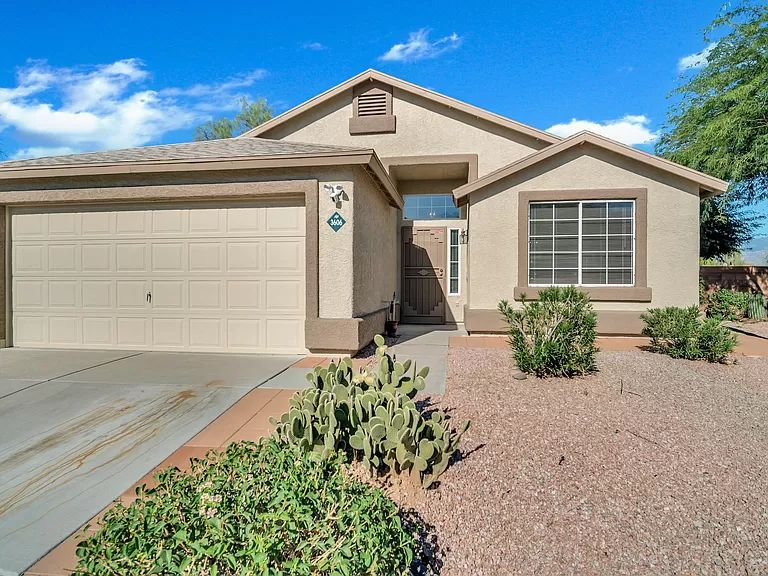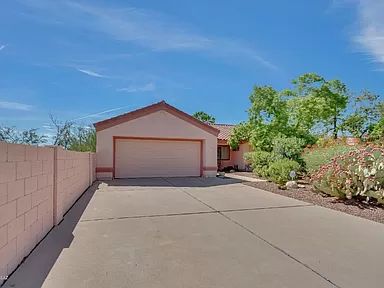Is Your Garage Door Stuck? Here's What to Do Initial
When your garage door will not open, start with these essential security checks prior to trying any repair services. First, make certain no person is standing near the door which automobiles are clear of the opening. Try to find noticeable indicators of damage like broken panels, bent tracks, or hanging cable televisions. If you see a snapped spring or badly harmed parts, quit quickly and call an expert—-- these repairs call for specialized devices and knowledge to deal with securely.

Check These 6 Points Before Calling a Specialist
Before presuming you need expensive repair work, run through this fast analysis checklist that solves most garage door troubles:
-
Power source: Confirm the opener is connected in and the electrical outlet is functioning
-
Remote batteries: Change dead batteries in your remote
-
Hands-on lock: Examine if someone inadvertently engaged the hands-on lock
-
Blockages: Seek particles obstructing the door's course or sensors
-
Emergency situation release: Make sure the red emergency cable hasn't been pulled
-
Circuit breaker: Confirm the garage circuit hasn't tripped
These easy checks resolve around 70% of garage door issues without needing expert intervention.
10 Typical Factors Your Garage Door Won't Open Up
Comprehending why your garage door opener isn't working helps you choose the right option. Right here are the most constant reasons home owners experience:
Dead remote batteries stand for the easiest solution—-- when batteries die, the remote can't send signals to the opener. Power outages or tripped breakers reduced electricity to the motor. Busted springs protect against the door from raising properly and need immediate expert attention. Sensing unit misalignment causes security systems to obstruct door operation. Track blockages quit rollers from moving efficiently. Motor overload triggers automated shutoffs when the opener discovers resistance. Limit button issues puzzle the opener regarding door setting. Wire damage interrupts the lifting mechanism. Weather-related issues influence door movement throughout severe temperatures. Element wear from age slowly reduces system performance.
Trouble # 1: Dead Remote Batteries
When your wall button functions but your remote doesn't, dead batteries are typically the offender. A lot of garage door remotes use either 3-volt lithium or 12-volt alkaline batteries. Eliminate the back cover of your remote and check the battery type. Change with fresh batteries and examine the remote. If it still doesn't function, you might require to reprogram it to your opener. Consult your opener's guidebook for details reprogramming instructions, as the process varies by producer.
Problem # 2: Power Supply Issues
Garage door power troubles commonly originate from loosened links or stumbled circuits. Examine that the opener is securely connected into its electrical outlet—-- resonance can loosen links with time. Evaluate the outlet with one more device to verify it's functioning. Analyze your home's breaker box for tripped circuits, specifically if you have actually experienced storms or power variations. GFCI electrical outlets might have tripped and require resetting. If the opener has power however won't react, the concern most likely lies elsewhere in the system.
Issue # 3: Broken or Damaged Springs
Busted garage door springs are among one of the most dangerous parts to handle. If you hear a loud bang from your garage or observe the door really feels exceptionally heavy when trying to lift by hand, a springtime has likely broken. Torsion springs run flat over the door, while expansion springtimes sit on either side. Never ever try spring repair work yourself—-- these elements store incredible tension that can cause serious injury or death. Professional substitute typically sets you back $150-$300 but guarantees your security.
Issue # 4: Obstructed Safety Sensors
Modern garage doors include security sensors that avoid closure when objects are found. These sensing units can quit the door from opening up if they're filthy, misaligned, or obstructed by debris. Tidy sensing unit lenses with a soft fabric and make certain absolutely nothing blocks the invisible light beam in between them. Check that sensing units are appropriately aligned—-- most have indication lights that show connection standing. Sensor issues typically settle with straightforward cleaning and change.
Trouble # 5: Track Obstructions or Damage
Garage door tracks guide rollers as the door moves up and down. Dirt, particles, old oil, or small things can jam the system. Inspect tracks visually and eliminate any type of obstructions with a brush or fabric. Seek damages, bends, or warping that might hinder smooth procedure. Small track modifications are feasible for convenient home owners, however substantial damage needs specialist fixing to stop further troubles or security risks.
Trouble # 6: Garage Door Opener Motor Issues
When the garage door electric motor runs however the door doesn't relocate, a number of problems could be accountable. The motor might be strained and shutting off as a precaution. Equipment wear, especially in older units, can avoid appropriate operation. Chain or belt drive troubles affect power transmission. If you hear unusual grinding, clicking, or humming noises, quit making use of the opener right away. Electric motor fixings typically set you back more than substitute, specifically for devices over one decade old.
Detailed DIY Troubleshooting Guide
Follow this systematic approach to garage door repairing while focusing on security throughout the process:
Action 1: Check the wall switch initially. If it functions but the remote doesn't, focus on remote concerns. If neither works, examine power supply.
Action 2: Examine the hand-operated launch cable. If it's been pulled, the opener is disengaged from the door. Press the cart back to reconnect.
Step 3: Manually test the door by disengaging the opener and attempting to lift the door by hand. It should move smoothly and remain in location when half-open.
Tip 4: Inspect noticeable components for damages, paying unique focus to springs, cables, and tracks.
Tip 5: Examine all safety features consisting of sensors, limitation buttons, and auto-reverse functions.
Action 6: Test various controls (remote, wall button, keypad) to isolate the issue source.
Always use safety glasses and job gloves when doing assessments, and never ever effort repair work on springtimes or high-tension parts.
When to Call an Expert vs. do it yourself Solutions

Knowing when to call a garage door expert versus attempting DIY repairs protects both your safety and security and your wallet. Take care of these issues on your own: dead remote batteries, power supply issues, minor track cleansing, sensing unit cleaning and positioning, and basic lubrication.
Never attempt these repair services on your own: spring substitute or change, cable television fixings, significant track adjustment, electric wiring concerns, opener motor replacement, or any type of fixing involving high-tension parts. Professional service technicians have specialized tools, training, and insurance policy to take care of unsafe repair work securely.
Think about fixing prices versus substitute expenses, specifically for doors over 15 years of ages. Modern garage doors supply better security features, power effectiveness, and reliability than older versions.
Emergency Situation Garage Door Solutions
When you're stuck with a garage door that won't open and require instant accessibility, comply with these emergency situation treatments:
Handbook Operation: Draw the red emergency release cord to disengage the opener. This allows manual operation however requires proper strategy to avoid injury. Raise the door gradually and uniformly, using leg muscle mass as opposed to your back. Many domestic doors weigh 100-150 extra pounds, making them workable for the majority of adults.
Short-lived Repairs: If the door opens up manually but won't stay up, prop it open with sawhorses or clamps—-- never ever use your body or lorries as assistances. For doors that won't shut completely, make certain the opening is safeguarded if you need to leave.
Emergency situation Service: Lots of garage door companies supply 24/7 emergency solution for situations including safety worries, caught cars, or complete system failures. While extra expensive than normal service calls, emergency fixings provide prompt remedies when required most.
Safety and security Caution: What NOT to Do
Garage door security needs recognizing harmful repair services that should never ever be attempted by property owners:
Never try to fix springs—-- they store enough energy to create fatal injuries when they snap or are incorrectly taken care of. Don't force a stuck door—-- this can damage the opener, tracks, or door panels, developing more pricey issues. Stay clear of bypassing safety and security attributes—-- sensors and auto-reverse why garage door light flashes but won’t close systems avoid major injuries and property damage.
Do not overlook odd sounds—-- grinding, scraping, or banging audios suggest problems that get worse in time. Never make use of the door if wires are torn or damaged—-- the door can fall suddenly. Don't try electrical fixings unless you're a qualified electrician—-- garage door openers use both 120V home present and low-voltage control circuits.

Precautionary Upkeep to Prevent Future Troubles
Normal garage door upkeep prevents most typical issues and expands system life expectancy significantly:
Monthly Tasks: Visual assessment of all parts, testing auto-reverse security attributes, inspecting and tightening hardware, and cleansing tracks and sensors.
Quarterly Jobs: Lubricating all moving get rid of appropriate garage door lubricant, testing guidebook operation, and inspecting weather sealing.
Annual Jobs: Expert inspection and tune-up, spring change if required, and opener upkeep consisting of belt or chain modification.
Seasonal Tasks: Getting ready for climate extremes, examining insulation, and readjusting opener settings for temperature level modifications.
Consistent upkeep prices much less than emergency repair services and guarantees dependable operation year-round.
Garage Door Will Not Open Up FAQs
Why will not my garage door open with the remote however collaborates with the wall surface switch?
This usually shows dead remote batteries, signal interference, or the requirement to reprogram the remote. Check batteries initially, after that consult your opener handbook for reprogramming guidelines.
Can I manually open my garage door if the power is out?
Yes, draw the red emergency launch cord to disengage the opener, after that raise the door by hand. Be gotten ready for the door's complete weight and lift with proper method to avoid injury.
How do I recognize if my garage door spring is damaged?
Indications include a loud bang from the garage, the door feeling extremely heavy when lifting by hand, visible spaces in the springtime coils, or the door just opening a few inches before quiting.
Is it safe to use my garage door if it won't open up right?
No, partial procedure shows mechanical issues that could worsen unexpectedly. Stop using the door and have it inspected by an expert to avoid more damage or injury.
What should I do if my garage door opens up but won't shut?
Inspect safety sensors for obstructions or imbalance, check out the tracks for debris, and evaluate the auto-reverse feature. If these do not resolve the problem, seek advice from a specialist.
How much does it cost to fix a garage door that will not open?
Costs vary widely depending on the trouble: battery replacement ($5-$10), professional diagnosis ($50-$100), springtime replacement ($150-$300), or opener replacement ($200-$500).
Can weather affect my garage door's ability to open up?
Yes, extreme cold can enlarge lubes and impact steel parts, while heat can create development problems. Many problems fix as temperature levels stabilize, however relentless problems may require expert interest.
Why does my garage door open up a few inches after that stop?
This generally suggests broken springtimes, limit button troubles, or track blockages. The opener's safety features stop operation when resistance is spotted, stopping damage to the electric motor or door.
Obtain Professional Help for Facility Concerns
When do it yourself repairing doesn't settle your garage door problems, expert specialists offer the know-how and tools required for safe, long-term repair services. Certified professionals detect concerns precisely, make use of manufacturer-approved parts, and offer service warranties on their job.
Specialist solutions include: detailed system assessments, spring and cord substitute, opener repair service and substitute, track positioning and replacement, electrical troubleshooting, and emergency situation service calls.
What to expect: in advance pricing, certified and insured service technicians, same-day service for numerous repair work, and follow-up maintenance referrals.
Most garage door business use totally free quotes for significant repair work and can give immediate options for immediate issues impacting home protection or lorry accessibility.
Getting Your Garage Door Working Again
A garage door that won't open does not need to spoil your day or damage your budget plan. Start with simple troubleshooting steps like examining power, changing batteries, and examining for noticeable blockages. Many troubles have fast do it yourself solutions that recover regular procedure within minutes.
However, recognize when specialist aid is needed—-- specifically for spring-related concerns, electrical problems, or facility mechanical failures. Attempting harmful fixings on your own runs the risk of severe injury and commonly creates extra costly issues.
Routine upkeep prevents most garage door issues and makes sure dependable procedure for many years ahead. When issues do happen, address them immediately to prevent more pricey repair services and maintain your home's safety and security and convenience. Whether you need a simple battery substitute or total system overhaul, services exist to get your garage door working efficiently once again.